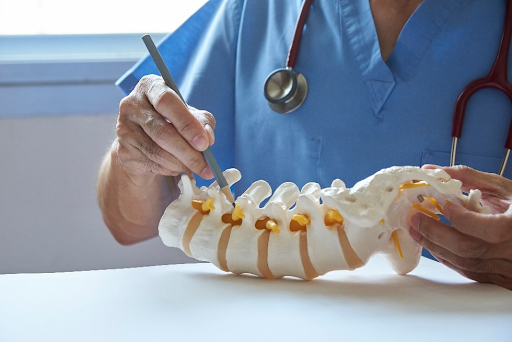Joint pain is a common problem that affects many people. It can make daily activities difficult and reduce your quality of life. Whether the pain is in your knees, hips, shoulders, or other joints, finding the right treatment is important to help you feel better and move freely again. An orthopedic surgeon is a specialist who can play a key role in diagnosing and treating joint pain to help you recover effectively.
Understanding Joint Pain and Its Causes
Joint pain can result from many causes. Sometimes, it happens because of injury, such as a fall or accident. Other times, it develops gradually due to conditions like arthritis or wear and tear over time. Inflammation, cartilage damage, or muscle weakness around the joint can also cause pain.
If joint pain lasts for weeks or months, or if it becomes worse, it’s important to see a healthcare professional. Ignoring the pain can lead to further damage and limit your ability to move normally.
The Role of an Orthopedic Surgeon in Joint Pain Recovery
An orthopedic surgeon is a medical doctor who specializes in the bones, joints, muscles, and ligaments. They have extensive training to diagnose problems related to the musculoskeletal system and offer treatments that can relieve pain and restore movement.
When you visit an orthopedic surgeon for joint pain, they start by taking a detailed history of your symptoms and performing a physical examination. They may also order imaging tests like X-rays, MRI scans, or CT scans to see the condition of your joints and surrounding tissues more clearly.
Based on the findings, the surgeon will suggest the best treatment plan tailored to your needs. Their goal is to reduce pain, improve joint function, and help you return to your normal activities.
Non-Surgical Treatments Offered by Orthopedic Surgeons
Not all joint pain requires surgery. Orthopedic surgeons often recommend non-surgical treatments first. These may include physical therapy to strengthen the muscles around the joint, which can support and protect it.
Medications such as pain relievers or anti-inflammatory drugs may be prescribed to reduce swelling and discomfort. In some cases, corticosteroid injections into the joint can provide relief by reducing inflammation.
The orthopedic surgeon may also advise lifestyle changes, such as losing weight if necessary, to reduce stress on the joints. Using supportive devices like braces or orthotic shoe inserts can help improve joint stability and reduce pain during movement.
When Surgery Becomes Necessary
If non-surgical treatments do not relieve the joint pain or if the joint is severely damaged, surgery may be the best option. Orthopedic surgeons are trained to perform various surgical procedures depending on the problem.
For example, arthroscopy is a minimally invasive surgery that allows the surgeon to look inside the joint and repair or remove damaged tissue. In cases of severe arthritis, joint replacement surgery, such as a knee or hip replacement, may be recommended to replace the damaged joint with an artificial one.
Surgical treatment is often followed by a rehabilitation program, where physical therapy helps restore strength and mobility. Orthopedic surgeons work closely with rehabilitation specialists to ensure a smooth and effective recovery process.
Benefits of Consulting an Orthopedic Surgeon Early
Seeing an orthopedic surgeon early in your joint pain can prevent your condition from getting worse. Early diagnosis and treatment can help preserve your joint and avoid the need for more complex surgery later.
Orthopedic surgeons not only focus on treating the pain but also on improving your overall joint health. They can educate you on how to protect your joints in daily life and suggest exercises to keep them strong and flexible.
Conclusion
Joint pain can limit your daily life, but help is available. An orthopedic surgeon is the right specialist to guide you through diagnosis, treatment, and recovery. Whether through non-surgical methods or surgery, they aim to relieve your pain and restore your ability to move freely. If you experience persistent joint pain, consulting an orthopedic surgeon early can make a significant difference in your recovery and long-term joint health.

